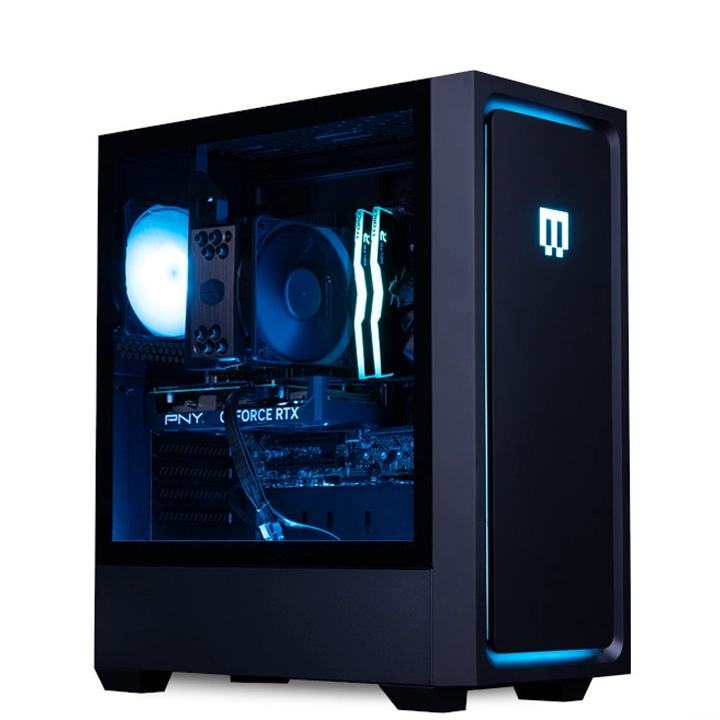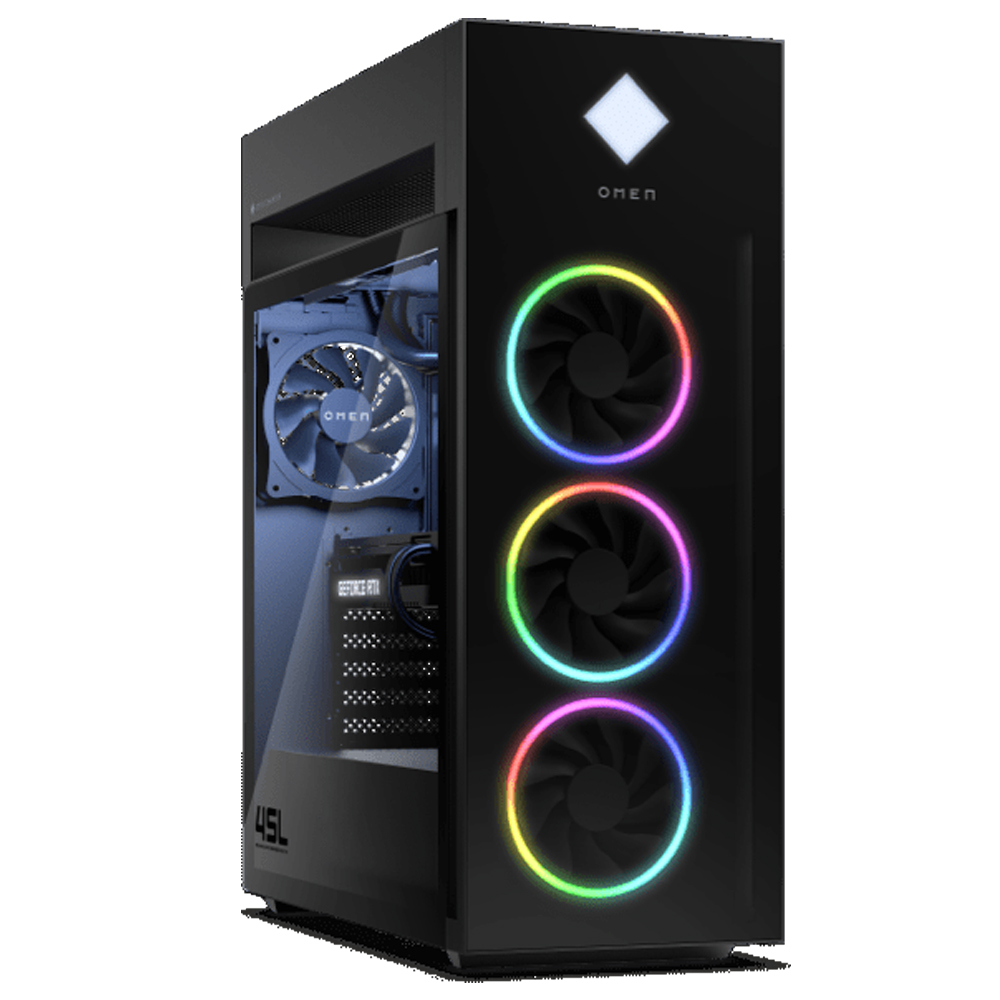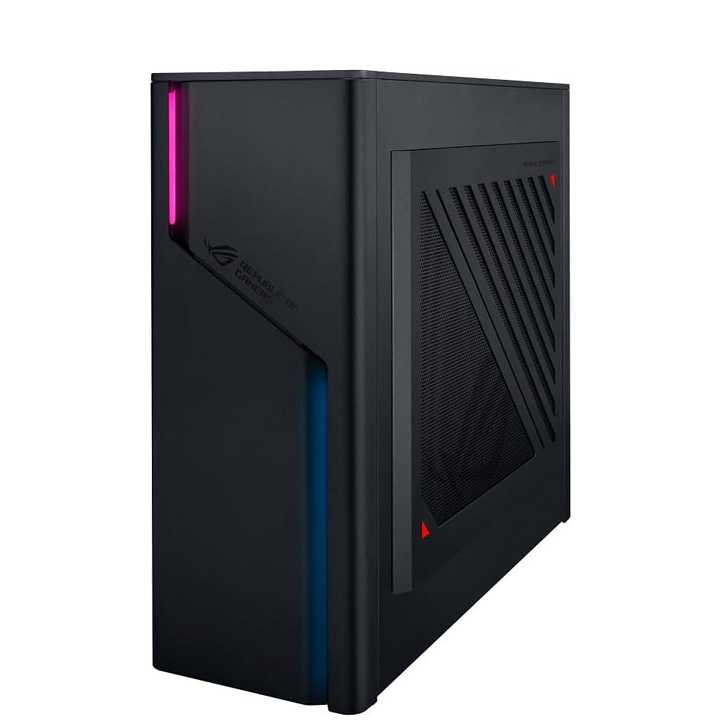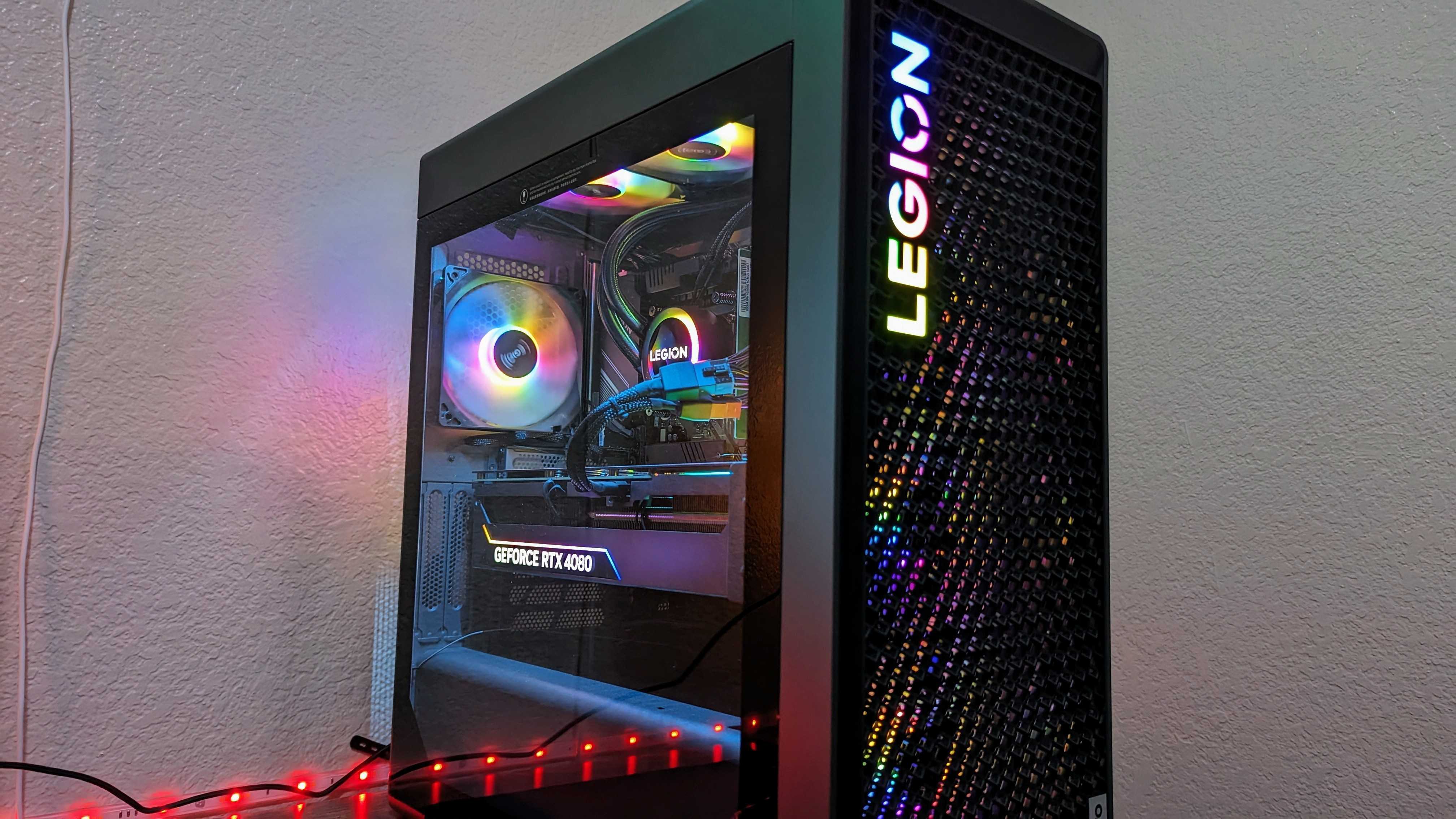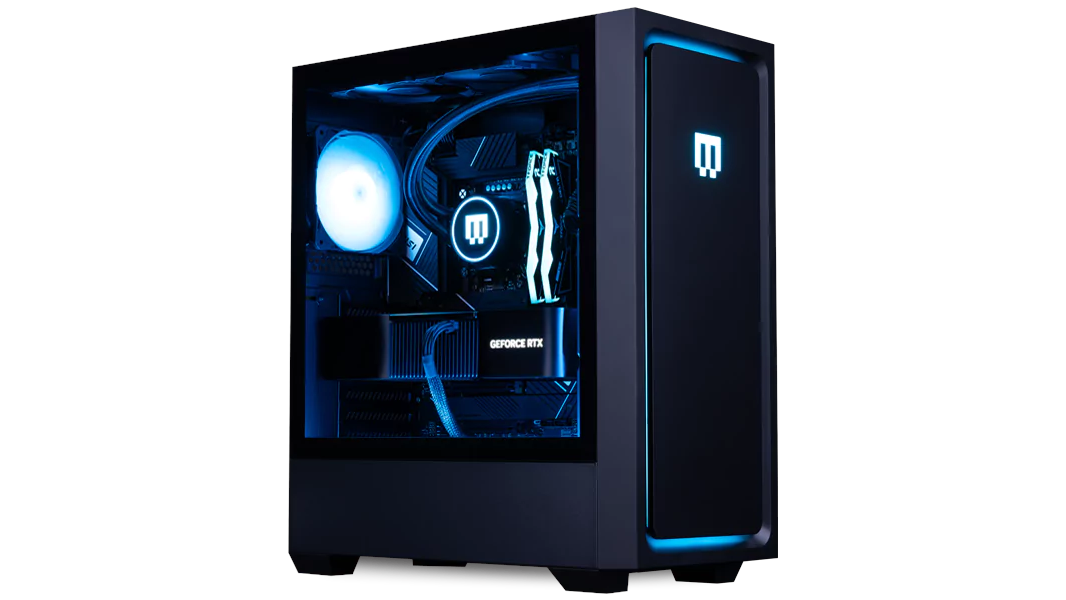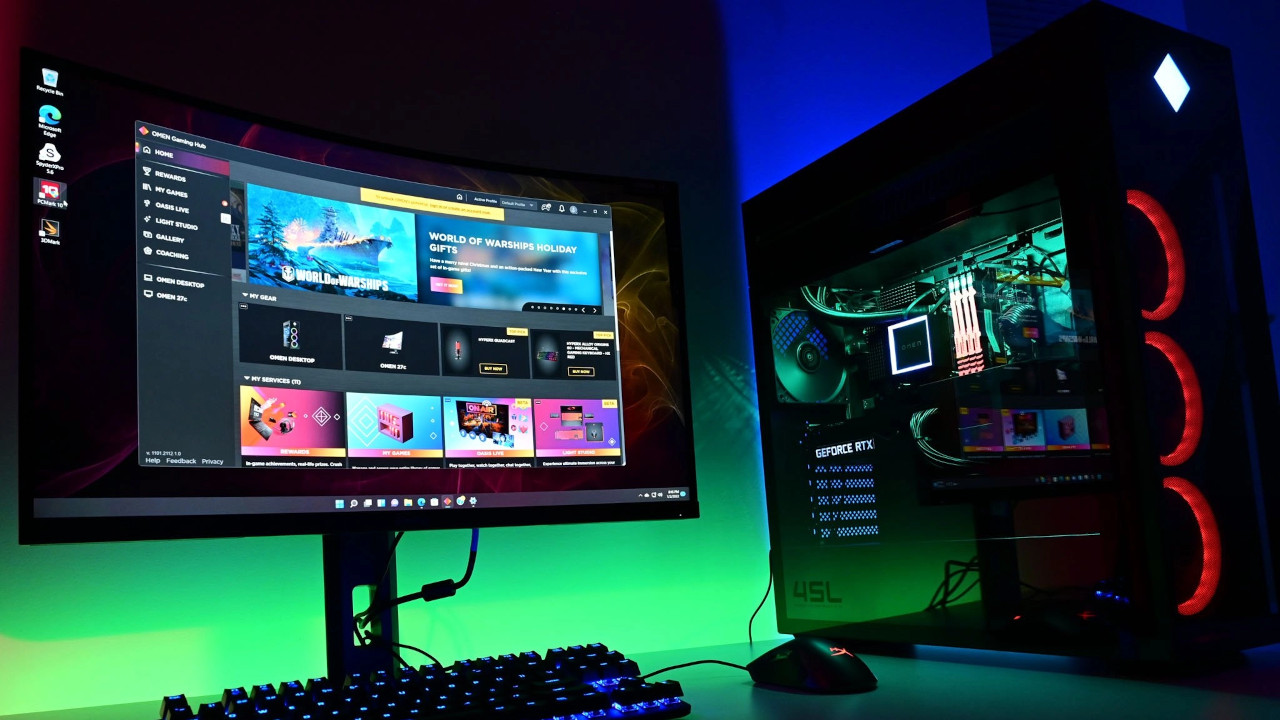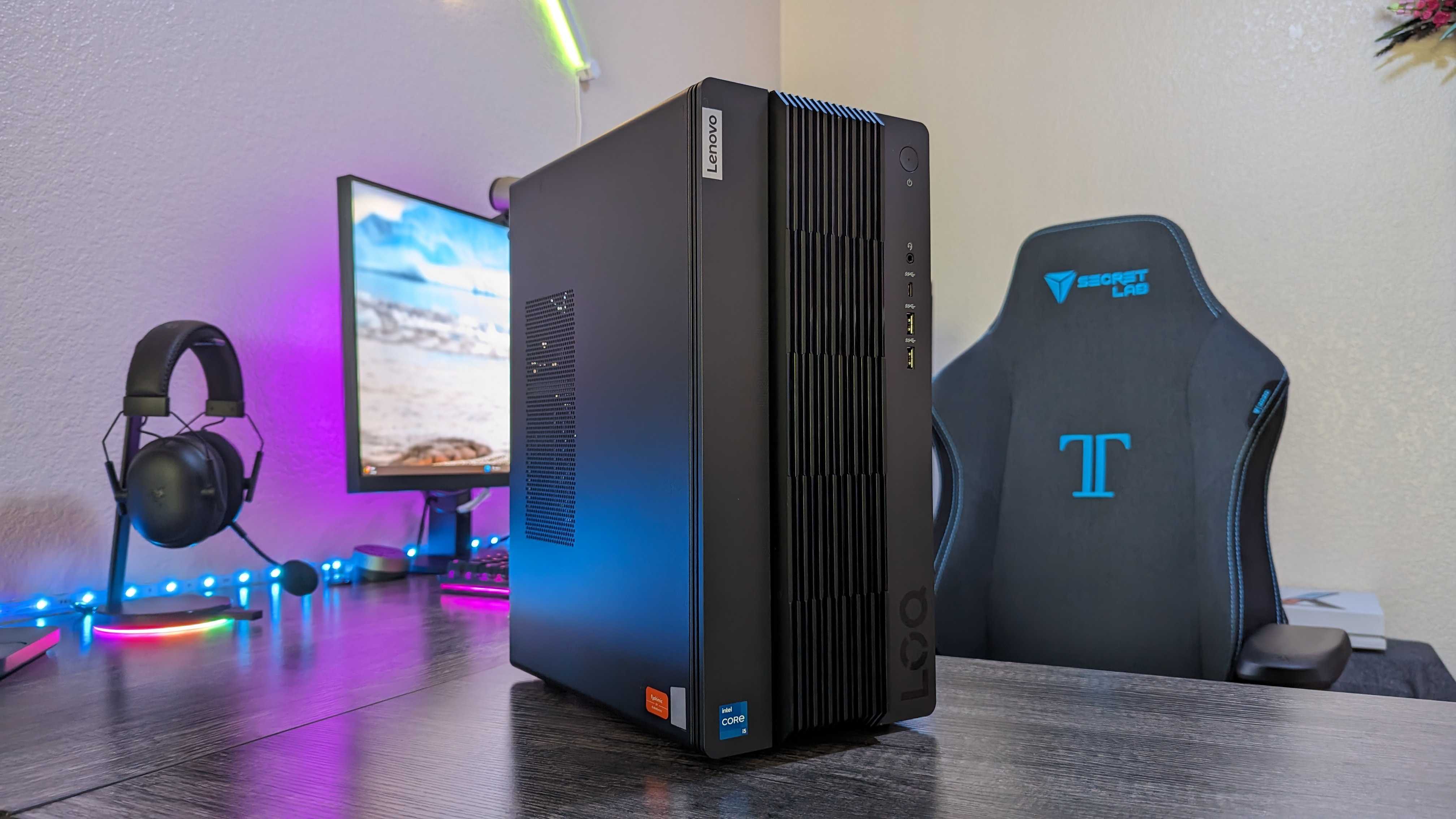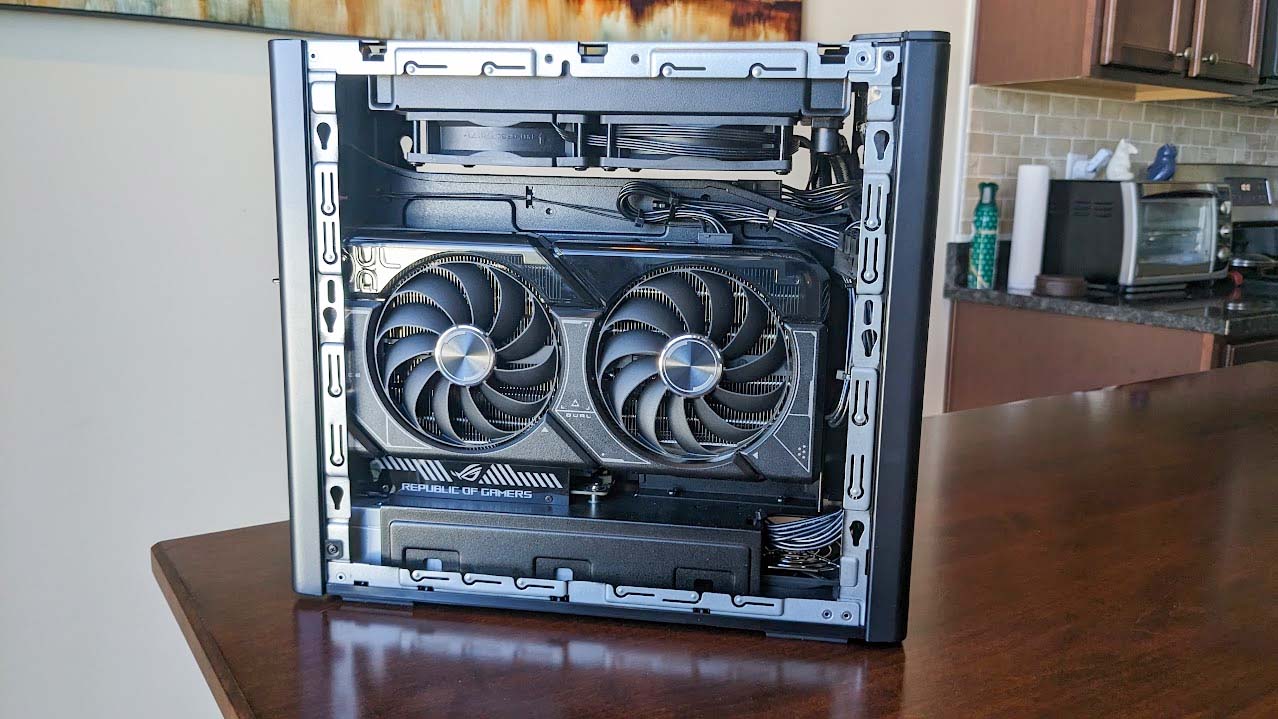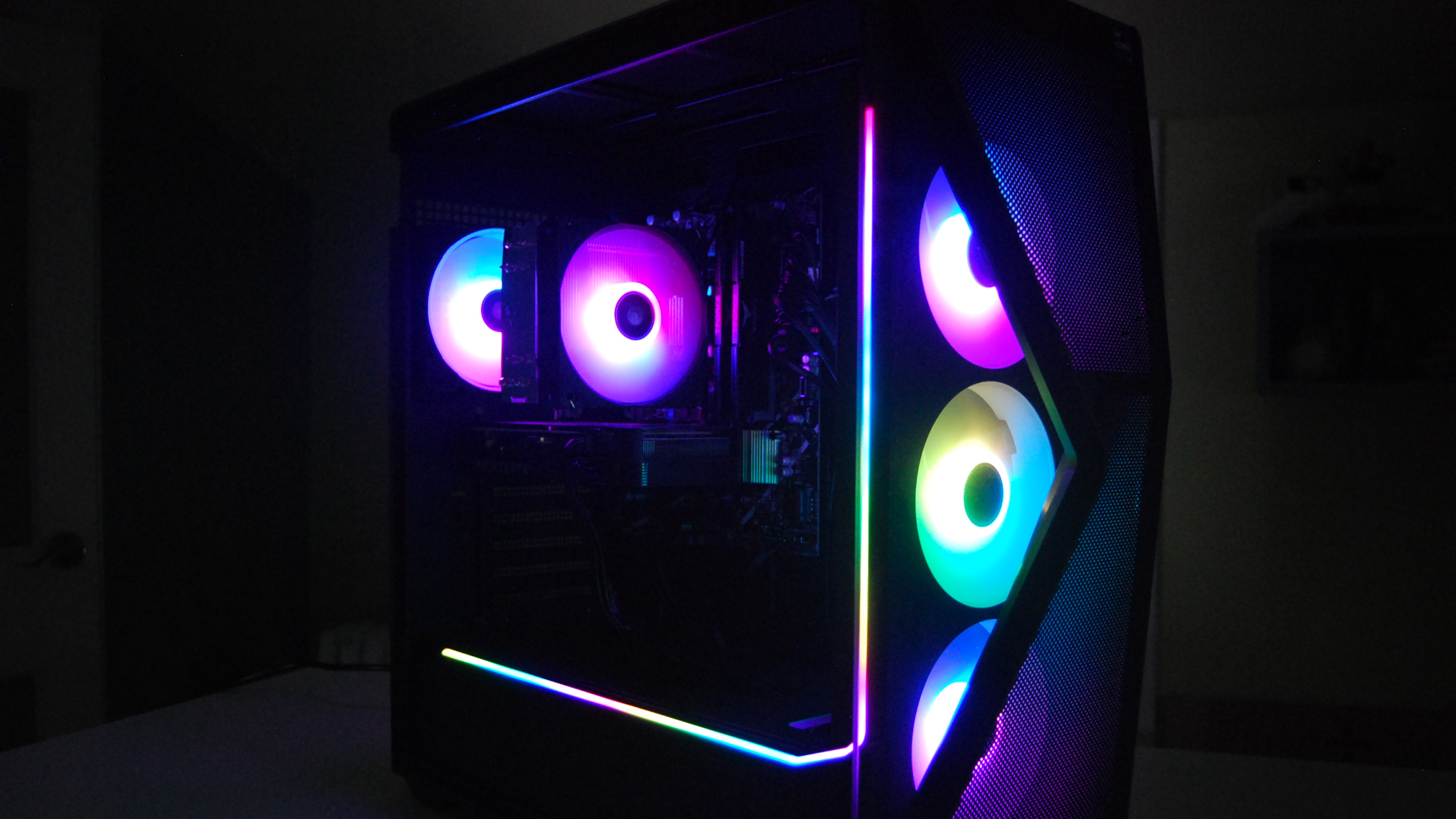Best pre-built gaming PC in 2025: You don't need to build your own rig to have a great time
These pre-built systems are highly configurable and ready to ship so you don't have to wait.
All the latest news, reviews, and guides for Windows and Xbox diehards.
You are now subscribed
Your newsletter sign-up was successful
Pre-built gaming PCs are a convenient alternative to building your own system. As long as you're OK with paying a small premium for assembly and, in some cases, getting a system with proprietary or OEM parts, pre-built PCs offer a lot of convenience.
The Lenovo Legion Tower 7i (Gen 8) is the best option for a lot of PC gamers. It starts at a higher price than some of the competition — models start about $2,170 — but it offers Intel Core i9 and NVIDIA RTX 4080 SUPER performance, enough to handle any of the most demanding AAA titles out there.
Not quite what you need? I've included five other top gaming PCs to suit more gamers. Bear in mind that due to the onset of tariffs imposed by the U.S, we may see more rapid price increases than previously expected in the months to come.
May 16, 2025: These pre-built gaming PCs continue to represent the best we've tested as we make our way through 2025 — Samuel Tolbert
The quick list
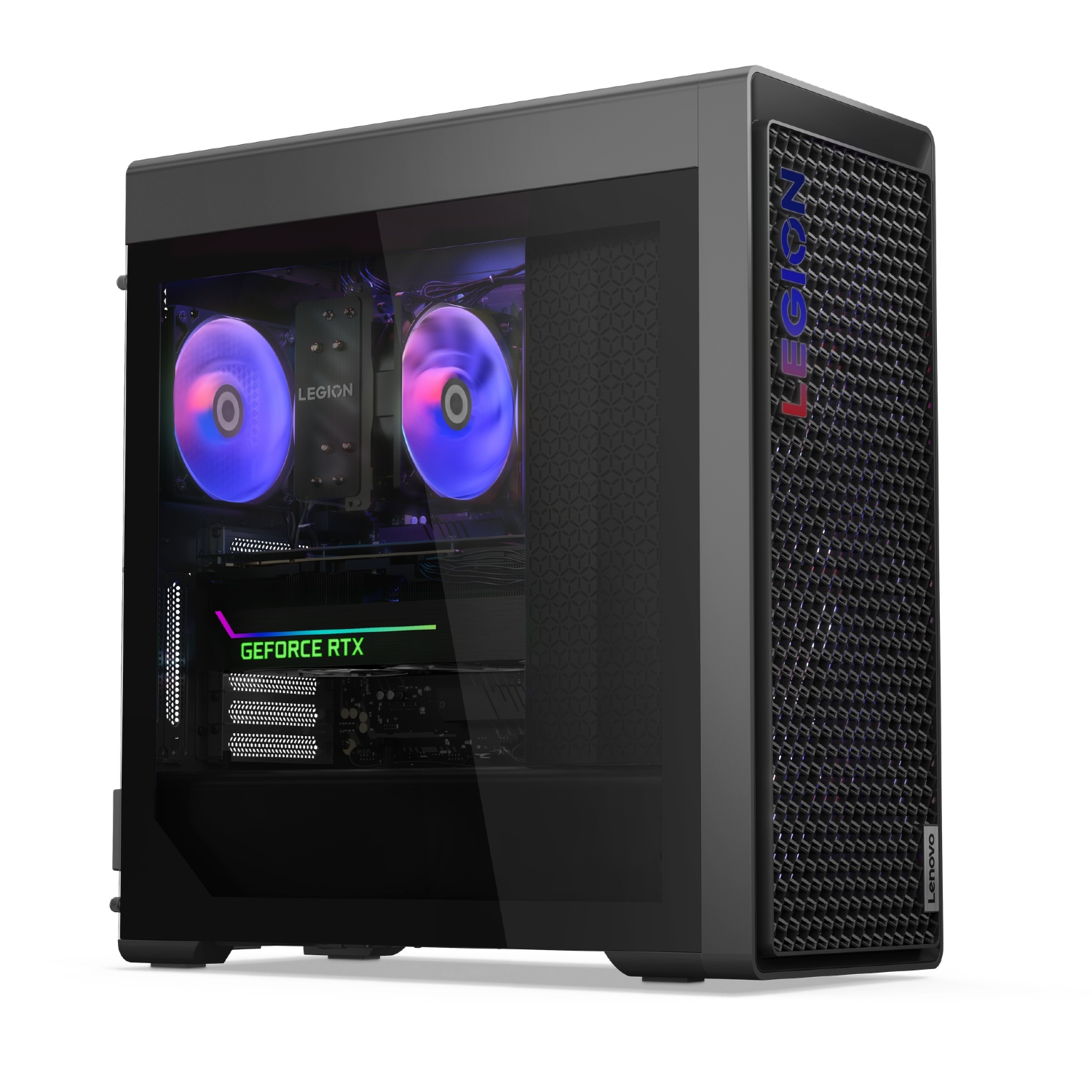
Best overall
The Legion Tower 7i (Gen 8) is available in many different configurations and has enough power for a comfortable 1440p or 4K gaming experience. It's relatively expensive compared to some other options in this list, but it will deliver a lot of power and some potential for future upgrades.
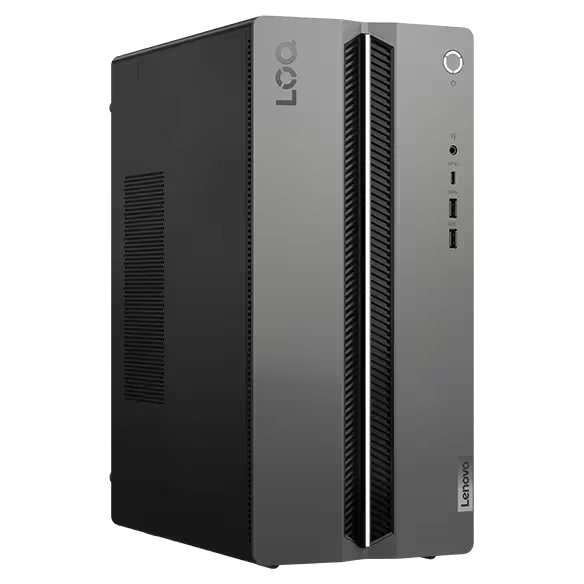
Best budget
Lenovo's Legion LOQ Tower starts at only $900 and is a top choice if you want to game at 1080p. It's not as conducive to upgrades as other options in this list, but the asking price balances out any inconvenience. It's a perfect option for casual and younger gamers.
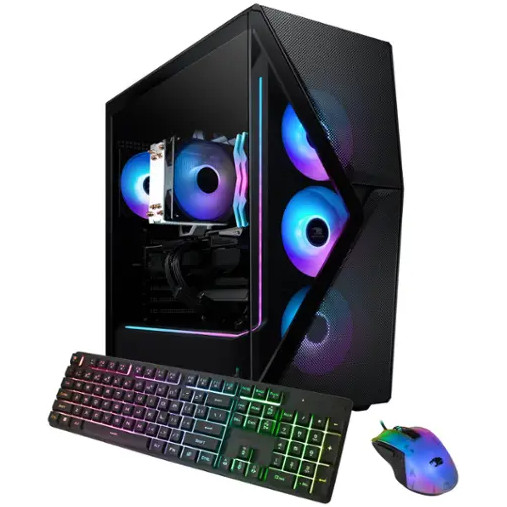
Best customization
iBuyPower's Slate 8 Mesh pre-built PC is available in preconfigured models, but the iBP website also has deep customization options that let you tweak everything. It's a PC that's built well with good cable management, and it uses standard parts throughout to make future upgrades easier.

I've been building custom PCs for about 20 years, and I understand that not all gamers have the time or yearn to put something together themselves. That's where pre-built gaming PCs come in. These PCs that the Windows Central team, including myself, have tested and/or reviewed will get the job done as long as you don't mind paying a premium to have the assembly done for you.
My favorite pre-built gaming PCs in 2025
Why you can trust Windows Central
Best overall
Specifications
Reasons to buy
Reasons to avoid
Lenovo's Legion Tower 7i (Gen 8) is built to accommodate PC gamers who want a ton of power. Lenovo's pricing can be finicky, with frequent and long-lasting discounts, and at the time of writing an introductory model can be purchased for about $2,170. It includes a 14th Gen Intel Core i9-14900KF processor (CPU), NVIDIA RTX 4080 SUPER graphics card (GPU), 32GB of DDR5-4000MHz RAM, and a 2TB M.2 PCIe 4.0 NVMe solid-state drive (SSD).
Models climb all the way to an NVIDIA RTX 4090 GPU, though that's probably overkill for most people. If you want a system with that much power (and that costs so much), I strongly recommend you build something yourself or check in with a boutique builder like Maingear.
Windows Central's Zachary Boddy reviewed the Legion Tower 7i (Gen 8) favorably, giving it a Best Award and a 90% overall score. On the subject of upgradeability, they stated:
"It's easy to access the internal compartment with no tools, just by loosening the glass side panel and sliding it off. From there, there's an easy-to-understand layout that makes it simple to access basically everything you might need to. Lenovo uses standard parts for the Legion Tower 7i rather than custom solutions (like with the Dell XPS Desktop), including an Intel Z790 motherboard that supports overclocking straight out of the box and features a solid number of expansion slots. Cable management is also fairly clean, considering the massive NVIDIA GPU cables."
The PC comes built into a stylized case with plenty of customizable RGB lighting on the logos and fans. Liquid CPU cooling is available, and the case otherwise has enough airflow to keep the components cool even when under load. The only major downsides Boddy saw in their review were a lack of USB-C port on the front of the case and relatively slow RAM speeds.
👀 Read our full Lenovo Legion Tower 7i (Gen 8) review
Best boutique
2. Maingear MG-1
Specifications
Reasons to buy
Reasons to avoid
Maingear's PCs are easy recommendations if you'd like a gaming rig that feels like you put it together yourself. The company's MG-1 series starts at about $1,999 but has countless customization options available, right down to the cables, fans, and power supply unit (PSU).
I've personally used and tested Maingear's MG-1, coming out the other side with very positive impressions surrounding the build quality and ease of future upgrades. The only thing proprietary is the case — with a customizable front panel — but it has plenty of room inside for even the most powerful performance hardware.
In-house warranty and support means you don't have to bother with individual manufacturer returns should something go wrong, and in my experience, the team is knowledgeable and happy to help.
Maingear offers both Intel and AMD CPUs, as well as NVIDIA and AMD GPUs, and all parts are branded, non-OEM stuff that you can buy yourself in stores. I highly recommend this PC to any enthusiasts who no longer have time to source individual parts and personally put together a custom system.
Premium pick
Specifications
Reasons to buy
Reasons to avoid
The HP Omen 45L is larger than its predecessor, but that's mostly down to an innovative "Cryo Chamber" cooling solution. In an era where building your PC is so common, many manufacturers are trying to think outside the box with their desktop rigs, and HP certainly did that. Being external to the rest of the PC, temperatures can be up to 6 degrees lower thanks to the lack of heated air from inside the machine.
On the one hand, you might say the design is a little uninspiring, but to the PC gamer, this is a machine where function is the primary concern, and ease of access is paramount. You simply pull the glass side panel off, and you have free access to all internal components, all of which can be upgraded over time. It supports a full ATX motherboard, though out of the box, HP used a microATX, which limits both built-in functions a little and how much you can expand.
In Windows Central Editor-in-Chief Daniel Rubino's Omen 45L review, he stated:
"HP has been bucking this trend with its Omen desktop line for a few years. The Omen 45L is the most extreme version of that ethos, and I'm here for it. As someone in their 40s, the Omen 45L is a gamer PC, but it is also mature and professional looking. I also appreciate all the name-brand components being used, as I know the company isn't cutting corners. Cooler Master, HyperX, and Western Digital? A buyer can have confidence in these brands."
The Omen 45L boasts the latest high-end of the NVIDIA RTX GPU lineup with the RTX 4090 as the top-end solution, CPUs from Intel's 13th and 14th Gen desktop lineup, DDR5 RAM, SSD storage; it ticks all the boxes. Prices at the time of writing start at about $1,999 for a model with an Intel Core i7-14700K CPU and NVIDIA RTX 4060 Ti GPU.
👀 Read our full Omen 45L review
Best budget
Specifications
Reasons to buy
Reasons to avoid
Lenovo's eighth- and ninth-gen LOQ Tower gaming desktops are practically the same besides an update to the Intel and NVIDIA performance hardware inside. The newer version offers up to a 14th Gen Intel Core i5-14400F CPU, NVIDIA RTX 4060 GPU, 16GB of DDR5 RAM, and a 512GB M.2 PCIe NVMe SSD. However, spending about $600 at the time of my most recent update will land you the same CPU with an RTX 3050 GPU.
This is clearly a pre-built PC made for 1080p gaming, especially if you're interested in low-impact titles like Minecraft, Fortnite, League of Legends, World of Warcraft, Valorant, Apex Legends, and so on.
Windows Central's Zachary Boddy reviewed the LOQ Tower (Gen 8), handing it a Recommended Award and a firm 90% score. They remarked:
"If you're in the market for a consistent, compact 1080p gaming machine, the Lenovo LOQ Tower is a quality option that won't disappoint. There's even some room to upgrade it should you want a little more power or to extend its life by a few more years."
Nevertheless, the LOQ Tower is best purchased and left alone to do its thing, aside from maybe some memory and storage upgrades. It's a cheap option for casual PC gamers, especially younger users who don't mind a system that doesn't promote easy upgradeability.
👀 Read our full Lenovo LOQ Tower (Gen 8) review
Best compact
Specifications
Reasons to buy
Reasons to avoid
Building a compact gaming PC can be a fun endeavor, but it also bumps the difficulty level way up. That's where the ASUS ROG G22CH comes in. Measuring just 12.72 x 11.3 x 4.53 inches, it packs a ton of power for even 1440p gaming into a tiny case. Upgrades beyond memory and storage might not be easy due to a proprietary motherboard design, but that's the big tradeoff with such a small form factor.
Windows Central Editor Rebecca Spear reviewed the ASUS ROG G22CH, giving it a Recommended Award and an overall 90% score. She remarked:
"If you want something ready to go when you get it and won't take up that much room, then the ASUS ROG G22CH-DB978 is an excellent choice. Its powerful CPU and GPU can handle any intensive gaming tasks you throw at it while producing high FPS and smooth gameplay. The fans run a bit loud, which also helps keep the system running efficiently."
The G22CH comes in a few different configurations, but the one I recommend for 1440p gaming includes a 13th Gen Intel Core i7-13700F CPU, NVIDIA RTX 3060 GPU, 16GB of DDR5 RAM, and a 1TB M.2 PCIe 4.0 NVMe SSD. It usually costs about $1,469, but is out of stock at the moment.
Other highlights beyond the solid performance include customizable RGB case lighting and a wide selection of ports for connecting your favorite gaming accessories.
👀 Read our full ASUS ROG G22CH (DB978) review
Best customization
Specifications
Reasons to buy
Reasons to avoid
iBuyPower's custom gaming PCs come in both pre-configured and configurable models. The former are often available at third-party retailers, while you'll have the best luck configuring the latter at iBP's official website.
If you'd rather speed up the process, Best Buy sells a model that's quite similar to the unit I reviewed. For a Core i7-14700F CPU, NVIDIA RTX 4060 GPU, 32GB of DDR5 RAM, and a 1TB M.2 PCIe 4.0 NVMe SSD, you can expect to pay about $1,250.
In my iBuyPower Slate 8 Mesh review, I remarked:
"iBuyPower's Slate 8 Mesh gets a lot right. The build has clean cable management and came assembled with no issues. The parts used in the build are mostly pieces you can buy on your own, save for the PSU and CPU cooler, which can be replaced after purchase. There's no bloatware installed, allowing you to choose exactly what sort of RGB software you want to use."
I pulled some points for the non-modular OEM PSU, but that can be remedied by configuring your own model with something more durable and functional. All you need to do is visit iBP's PC builder tool to set everything up exactly how you want.
👀 Read our full iBuyPower Slate 8 Mesh review
Choosing the best pre-built gaming PC for you
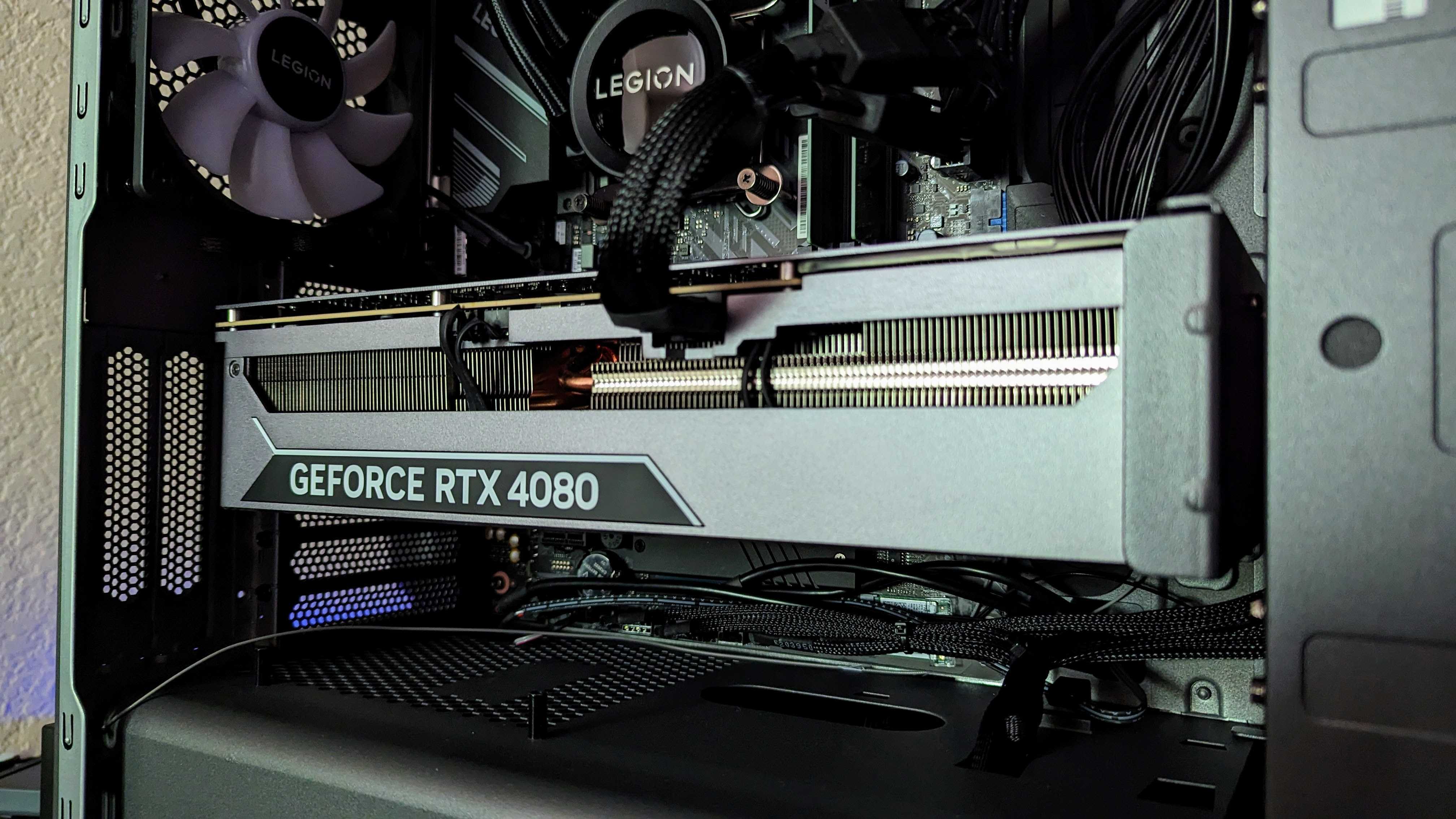

The team at Windows Central has used and tested all of the pre-built gaming PCs in this list, and we have reviews for all but the Maingear MG-1. It's a PC that I have personal experience with, and I'm comfortable suggesting it as a higher-end option for those who want to begin with a foundation that can be easily updated in the future.
Lenovo's Legion Tower 7i (Gen 8) is an impressive pre-built gaming PC that should appeal to plenty of people. It's available with the most powerful Intel and NVIDIA hardware, it has a stylized case with plenty of customizable RGB lighting, and you can upgrade all the major components without much fuss. However, with prices starting at about $2,350 even when on sale, you might not need as much PC power for your favorite games.
My personal favorite in this collection is Maingear's MG-1. It's a pre-built PC that I've personally used and tested, and it's the closest thing I've seen to a build that I put together myself. Not only is great attention paid to the building process, but you also have the opportunity to configure on Maingear's website every component, right down to the cabling. Models start at about $1,249, and that's with enough power to run just about any game at 1080p or 1440p. This is the PC I recommend if you want to avoid proprietary parts that get in the way of future upgrades.
A close second to Maingear's MG-1 is the iBuyPower Slate 8 Mesh that I also reviewed. It costs about $1,149 and has everything you need to game at 1440p, with few OEM parts inside that allow for an easy upgrade path.
As for the other picks, they'll undoubtedly find a home with specific users. The HP Omen 45L is a monster of a gaming PC available with the best performance hardware out there, but it takes up a lot of space and doesn't come cheap. Then there's the Lenovo LOQ Tower at the other end of the spectrum, delivering 1080p performance for far less than $1,000.
If you're short on space, I recommend having a look at the ASUS ROG G22CH or ASUS ROG NUC 970 (which I moved to our roundup of best mini PCs). Both are much smaller than your average gaming desktop, yet they can handle all modern titles with ease.
How we test pre-built gaming PCs
We do our best to focus our guides on devices we have tested in-house. When that isn't possible, we use reviews from sister sites, consensus, and forums to research any known issues with the computers we are looking at. Luckily, all of the PCs I've included in this guide have been personally used and tested by Windows Central Staff.
Feel free to check out the articles 'How we test and review on Windows Central' and 'How we test and review laptops and computers at Windows Central' for more information.
FAQ
Should you build your own gaming PC?
Building your own PC will, in most cases, save you money. That's because PC builders charge a premium for the assembly process and extra warranty, which is fair. However, PC builders often use proprietary parts in their builds while also cutting corners to reduce costs.
If you'd like to avoid those issues, I recommend building your own PC. It's a fun and rewarding process, and it can teach you a lot about how the individual components work together. Our PC build section has plenty of resources to help you along the way, with recommendations for great GPUs, CPUs, motherboards, RAM, and storage.
How much RAM and storage should you get in your PC?
For gaming purposes, I don't recommend any system with less than 16GB of RAM. If you're multitasking or streaming, 32GB or even 64GB is better. Even DDR5 RAM keeps dropping in price, and I recommend, if possible, to buy less RAM from the factory and buy it separately. This will save you money and will no doubt help you land the right memory speed for your needs.
As for storage, I recommend an M.2 PCIe 4.0 NVMe SSD rather than a SATA HDD. M.2 drives are much faster and take up less space; just be sure your PC has the right slots for upgrades. Getting at least 512GB is recommended, but 1TB and beyond is even better. Game files keep increasing in size, and there's nothing worse than having to delete other games to make room for a new title.
Are tariffs causing PC prices to rise?
Yes, though the exact amount of impact tariffs are having on hardware is hard to quantify, given the chaotic nature of the Trump administration's trade war. A recent deal with China reduced tariffs for 90 days, but once that expires, prices may increase again. We've also seen manufacturers like Razer stop importing some hardware as a result of increased prices.
All the latest news, reviews, and guides for Windows and Xbox diehards.

Cale Hunt brings to Windows Central more than nine years of experience writing about laptops, PCs, accessories, games, and beyond. If it runs Windows or in some way complements the hardware, there’s a good chance he knows about it, has written about it, or is already busy testing it.
- Colton StradlingContributor
- Samuel TolbertFreelance Writer
- Richard DevineManaging Editor
